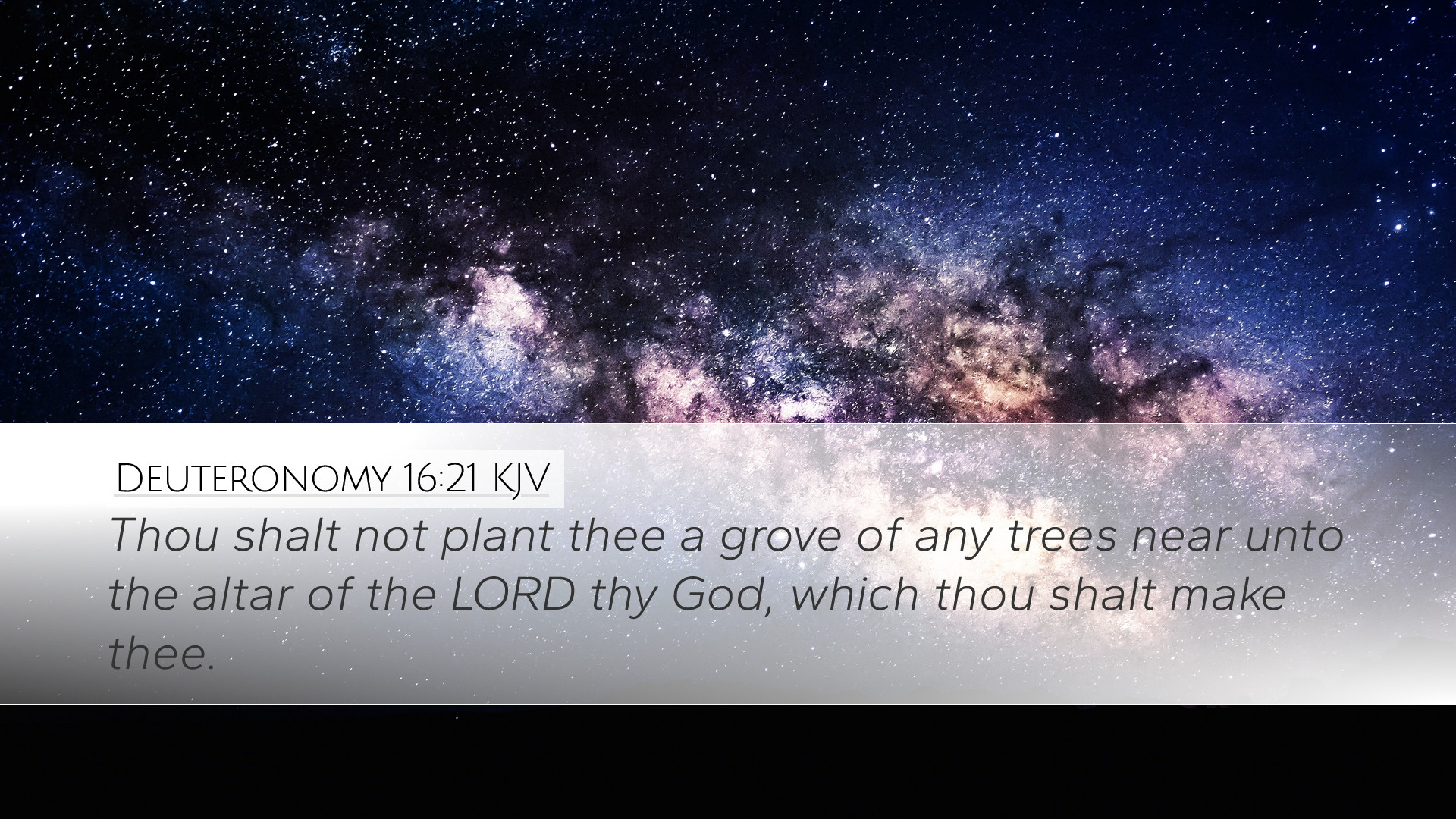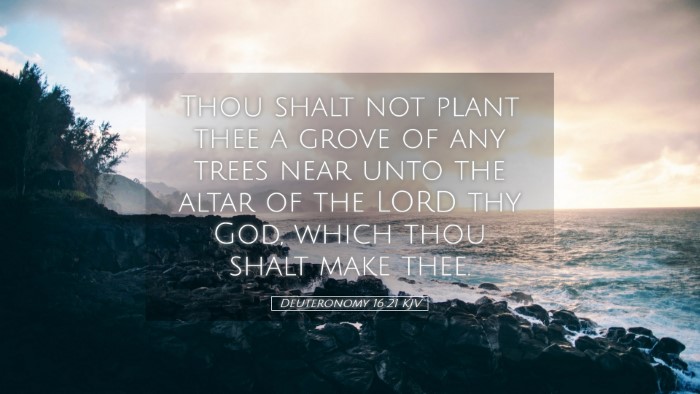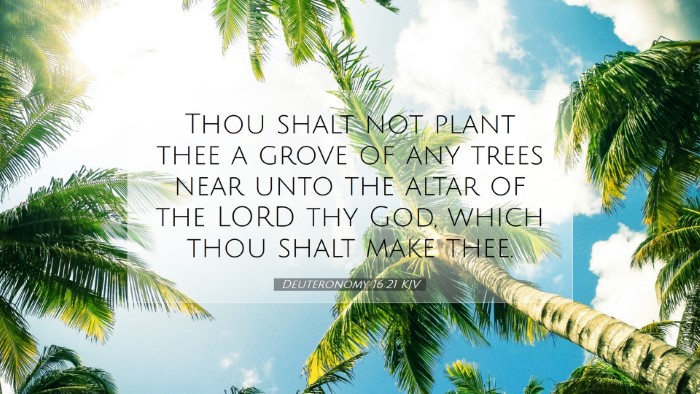Commentary on Deuteronomy 16:21
Verse: Deuteronomy 16:21 - "Thou shalt not plant thee a grove of any trees near unto the altar of the LORD thy God, which thou shalt make thee."
Introduction
The verse in question serves as part of a larger discourse concerning proper worship and the sanctity of the worship site dedicated to the Lord. Understanding this verse requires delving into its religious, historical, and cultural context. The admonition against planting groves near the altar underscores the importance of holiness and purity in the worship of Yahweh, contrasting it with prevalent pagan practices of the time.
Commentary Insights
1. Historical Context
As noted by various scholars, including Matthew Henry, the Israelites stood on the cusp of entering Canaan, a land filled with idolatrous practices. The prohibition against planting groves is linked to the pagan rituals often performed in these settings. The presence of such groves was intimately tied to idol worship, particularly the worship of Asherah, and, as Albert Barnes indicates, was a common practice among the Canaanites.
2. Theological Implications
The directive to avoid groves is significant for the theology of worship. According to Adam Clarke, the altar represents a place of divine encounter and sacrifice, a locus of God's presence. By avoiding the planting of groves, the Israelites are reminded to maintain the altars as places dedicated solely to God, free from any suggestion of syncretism or idolatry.
3. The Nature of the Sacred Space
In this light, it's essential to understand that the altar symbolizes not only sacrifice but also the covenant relationship between God and His people. Matthew Henry stresses that the purity of sacred space is paramount. By introducing elements associated with idolatry near the altar, the people risk polluting their worship and corrupting their covenant identity.
4. Practical Applications for Worship
This command offers profound insights for contemporary worship practices. Pastors and theologians can draw from this passage to discuss the importance of maintaining the sanctity of worship environments. Albert Barnes explains that the principle extends beyond physical locations to the heart's condition. Worship must be free from distractions and influences that could lead believers away from genuine adoration of God.
5. Symbolism of Trees and Groves
Trees and groves often symbolize life and fertility in Scripture but can also represent idolatrous practices. Adam Clarke elaborates on how the greenery, though beautiful, may distract or lead the faithful astray. Thus, the instruction is not merely about physical alterations but about ensuring the worship community remains steadfast in their devotion to God alone.
6. Modern-Day Syncretism
The warning against groves can be paralleled with the modern temptation of syncretism, where believers blend Christian practices with secular or pagan influences. Matthew Henry cautions against any dilution of faith, reminding students of theology and pastors alike that purity in doctrine and practice is essential for true worship.
7. Conclusion
In conclusion, Deuteronomy 16:21 encapsulates a principle of worship that emphasizes purity, devotion, and exclusivity in the relationship between God and His people. As noted by Albert Barnes, understanding this verse within its broader biblical context enables a vital examination of how modern believers can guard their worship from contemporary idols and distractions. This passage serves as a timeless reminder of the call to uphold God’s standards in all expressions of worship.


